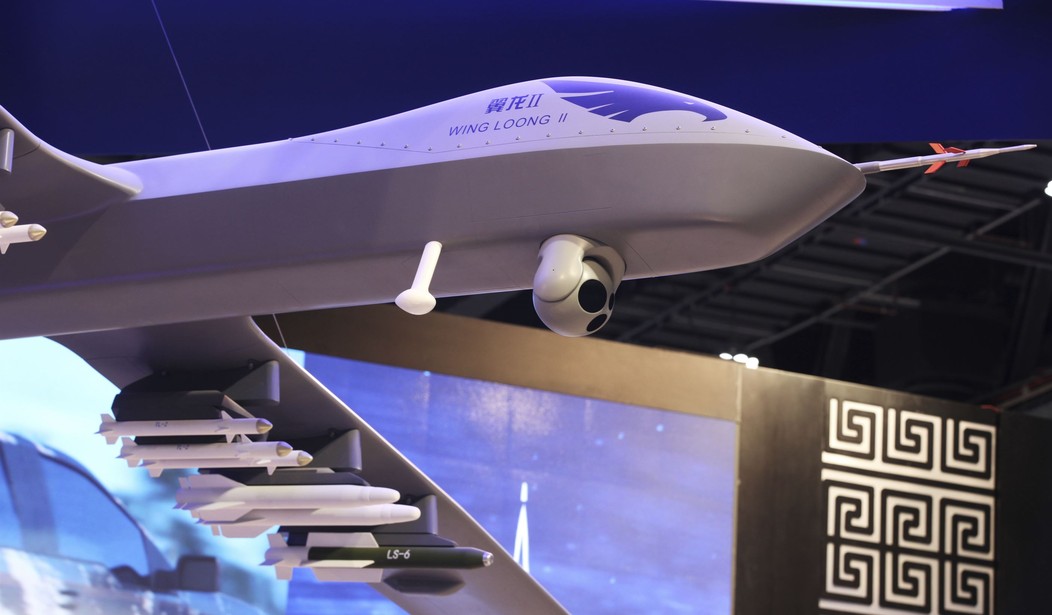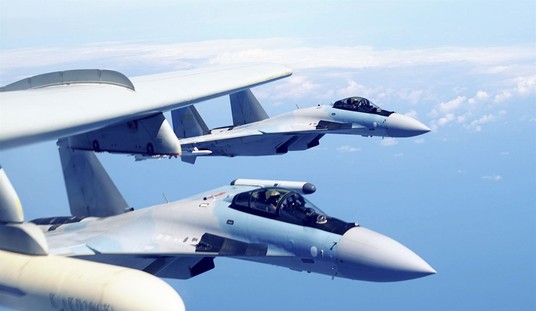I am usually skeptical of efforts to change the military.
It's not that the military doesn't need reform; it desperately does. Our woke military leaders are horrible, the procurement system is a disgrace, and our Navy is mismanaged so badly that I don't know where to begin.
It's just that the people who meddle with military matters usually make things worse. Change for change's sake is a bad idea.
A US Army drone branch? "The branch would address not only small UASs but also counter-small-UAS capabilities. The move is reflective of the lessons learned in Ukraine and also reflective of what our international partners are doing." https://t.co/IBT9zbc2E7
— Samuel Bendett (@sambendett) May 13, 2024
But in this case I think the reformers are on to something. It's quite clear that drones are a revolutionary technology that will change the battlefield forever, just as armored cavalry, airborne cavalry, and anti-aircraft weapons did. It makes sense to have a branch of the Army to focus on the use of drones and efficient ways to defend against them.
The Army would gain a drone branch under proposed language in the 2025 defense authorization bill, a move intended to further professionalize the field and put it on par with the service’s other disciplines.
The Army currently fields 22 branches, from air defense artillery to transportation. The branches are the building blocks of the Army, with each job, or military occupational specialty, organized under a branch.
The change is proposed in the version of the 2025 policy bill advanced by the tactical and land forces subcommittee of the House Armed Services Committee.
In addition to drone operation, the branch would also handle counter-drone work, said a congressional staffer, speaking on background. The branch would address “not only small UASs”—unmanned aerial systems—“but also counter-small-UAS capabilities,” the staffer said.
The move is “reflective of the lessons learned in Ukraine and also reflective of what our international partners are doing,” the staffer said. Ukraine in February established a drone branch.
Designating drones as a separate branch within the Army could increase specialized training and innovation, as well as enable more targeted recruitment of drone operators, according to an op-ed published by an Army aviator.
A Department of Drones would be a bad idea for many reasons, but an but a branch within our Army is almost certainly a good one. Creating a separate "Drone Force" would put it in direct competition with the Army, Navy, Air Force, and Marines for bureaucratic and procurement power. I'm not even sure that ground support by aircraft shouldn't be an Army mission, and am certain that keeping drone operations in the Army is the best way to go. If needed, the other military branches should include their own--the Navy definitely needs a drone strategy more developed than what they have.
An approach that is more in line with the framework of the US military would involve the individual armed services — Army, Air Force, and Navy — each developing a specialized branch or career field focused on uncrewed systems (excluding space systems, which are uncrewed by nature and covered by the Space Force). Each service could harness its unique domain expertise to advance the integration and utilization of drones and autonomous systems.
Specifically, the Army should take the lead on land-based uncrewed vehicles and the smaller to medium-sized aerial drones that have become prominent in conflicts like the one in Ukraine. The first step would be to establish an Uncrewed Systems Branch that stands alongside the traditional Combat Arms branches like Infantry, Armor, and Aviation. This new drone corps would accelerate the adoption of uncrewed technologies, advance the development of new strategies, and improve talent management.
It is clearly the ground forces which most need to address the drone threat and use them as effectively as possible. Just as artillery is different than infantry or armor, drones deserve their own focus. Not only have drones proven to be a force muliplier on the battlefield, they are extremely cost effective.
Separate language in the proposal calls for the Army to “establish and operate an Electronic Warfare Center of Excellence within the Army Training and Doctrine Command.” Electronic warfare has similarly taken on increased importance thanks to the Russian-Ukrainian war, with U.S. precision weapons frequently falling prey to Russian electronic warfare.
Learning the lessons of the Ukraine war has surely been a major focus of the armed services, who have been watching very carefully as Ukraine has employed tactics and weapons developed in the West.
At least something good is coming out of this conflict.







Join the conversation as a VIP Member